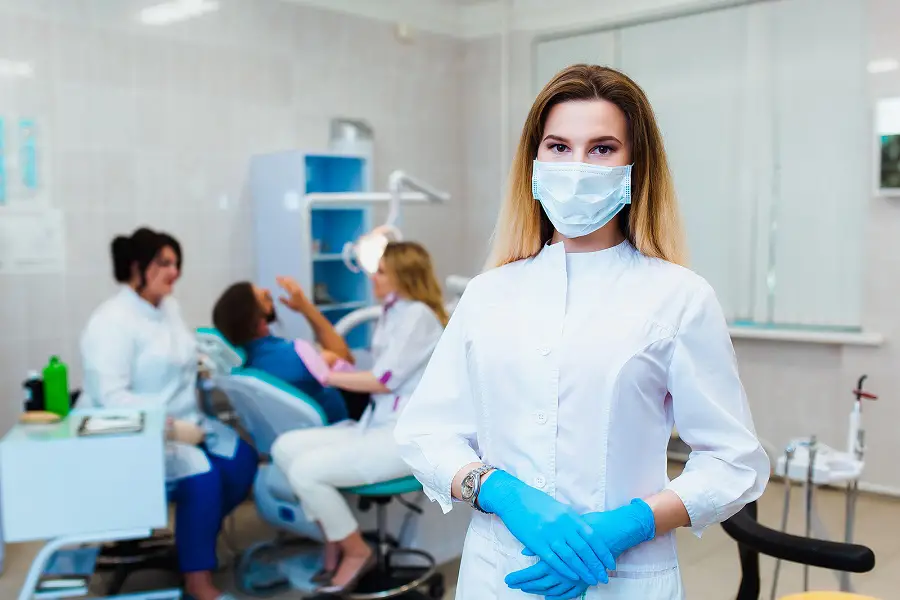Bad breath, medically known as halitosis, is often caused by the accumulation of plaque and tartar. However, it can also be caused by other factors as well. Listed below are some common causes of bad breath:
Poor Dental Hygiene
When proper oral hygiene habits are not practiced, plaque and bacteria buildup in the mouth can lead to bad breath. Plaque contains acids that eat away at tooth enamel and cause cavities. Over time, these cavities can cause pain and also put patients at risk of widespread infection.
If oral health is neglected and the cavity is not treated, the infection can spread to the gums and other soft tissues inside the mouth. As the tissue becomes infected, it sends odorous signals from the oral cavity back into the nose, where it can be smelled by other people.
The best way to prevent bad breath is to practice good oral hygiene. Brushing and flossing at least twice a day helps to remove food particles from between the teeth and along the gum line, preventing the formation of plaque and tartar. In addition to brushing and flossing, mouthwash can also kill bacteria and freshen the breath.
Gum Disease
The biggest cause of bad breath is gum disease. This oral health condition infects the gums and causes the tissue to pull away from the teeth, creating deep pockets where food and bacteria can get stuck. As more debris builds up in the pockets, it creates more and more odor until it permeates the air when you exhale.
You can prevent or treat gum disease by seeing your dentist for regular cleanings and checkups. Cleanings remove the leftover plaque and tartar that brushing at home cannot, so regular dental visits can help prevent gum disease from developing in the first place. If you’ve already been diagnosed with gingivitis or periodontitis, it’s important to visit the dentist regularly to clean out the bacteria and prevent it from spreading.
Certain Medical Conditions
Other causes of bad breath include dry mouth, tobacco use, and medical conditions like diabetes, acid reflux, or liver or kidney diseases.
If you suffer from chronic bad breath, your dentist may be able to help you figure out what’s causing it and offer treatment options for relief.
Diet
While food does not cause bad breath on its own, some foods can cause microbes in your mouth to multiply faster than usual. For example, eating a lot of garlic or onions can release sulfuric compounds into your bloodstream. These substances are carried through the circulatory system and into the lungs, where they are excreted from the body. This produces an unpleasant odor as your breath is exhaled. Other common foods that cause bad breath include fish, large amounts of dairy, spicy foods, and foods that are high in sugar and refined carbohydrates. To mitigate this side effect, avoid these foods or consume them in moderation.
Similarly, sugary soft drinks and fruit juices can increase the number of bacteria in the mouth. The increased acidity encourages the growth of these bad-breath-causing microorganisms. Drinking water after consuming such beverages will reduce the amount of acid in their mouth and help reduce the risk of cavities and periodontal disease. If you do drink soda and/or juice, it is a good idea to rinse your mouth out with water immediately after consumption.
Certain Medications
Some medications can also cause dry mouth, which can contribute to bad breath. A dry mouth is caused by a decrease in saliva production. As the mouth struggles to produce adequate amounts of saliva to keep itself clean, dead cells and food particles remain stuck between the teeth, gums, and other oral structures. Bacteria can also accumulate more easily in a dry mouth because there is less protective saliva to wash them away. You can discuss alternative medications with your physician if you experience this problem.
To learn more about our dental care services or to schedule an appointment with us, contact Premier Dental Connections, New Port Richey, FL, by calling us at (727) 376-2299.






